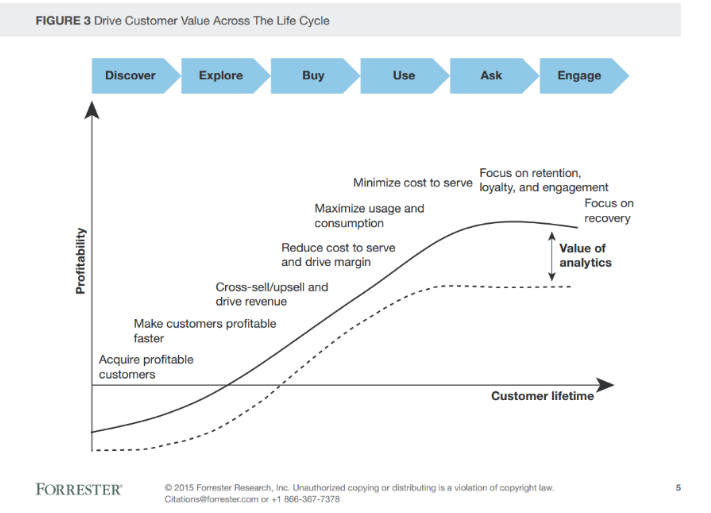Using Analytics to Develop Digital Marketing Strategies
Digital Optimisation
With the increase of internet availability, an increase in digital marketing has come about. The data aggregated from these channels can provide insights as how to better shape their content, target certain customer personas and modify current campaigns. Because the digital marketing scape is now so vast, it’s in this area, SEO and SEM specifically, where Big Data is having the largest impact on marketing programmes. Big Data has made it possible to keep track of and analyse keywords, mobile and on-page optimisation, backlinks and content marketing. However, because search engine algorithms are constantly changing, typically every day, the Big Data available must constantly be evaluated and analysed to best predict insights, in this case strategies to affect SEO rankings.
Using Big Data
The customer journey through a purchasing process is increasing drastically with the availability of data becoming more readily accessible. Shopper studies found the average number of data sources being utilised for a purchase increased from 5.3 in 2010 to 10.4 in 2014. With the likelihood of this still increasing, using and analysing customer data is becoming increasingly influential within marketing strategies.
A recent poll of marketing professionals found that all respondents believed that successful brands must use customer data to drive marketing decisions; however, results from a CMO summit poll suggest almost two thirds of marketing teams don’t have the capability to utilise data and predictive analytics effectively.
It’s also been found that 48% of Big Data “use cases” within businesses were from marketing teams developing customer analytics. This suggests that marketing teams are using analytics to aid the development of their strategies, and if you’re not… you should consider doing so, so your competitors don’t progress ahead of you.
Analysing your Customers
For data analytics to be most effective within a marketing strategy, it should be used to target the entire customer life cycle, instead typically of just awareness, customer acquisition and ROI as superior priorities. From persona development and lead scoring within the discovery stage, through offer optimisation and up-selling opportuning models within the exploration and purchasing stages, to loyalty and reward models in the post-purchase engagement stage, effective data analytics will deliver intelligent, predictive insights as to how your business should develop its marketing strategy.
The figure above, taken from a whitepaper on “How Analytics Drives Customer Life Cycle Management” by Forrester, shows how the value of analytics develop over a customer life cycle. Most noticeably, it suggests that the greatest value of analytics are during the retention phase of the customer journey.
If you are looking to improve customer retention, or increase conversions, get in touch with Freelance SEO Essex today to learn how we can help your business grow.























